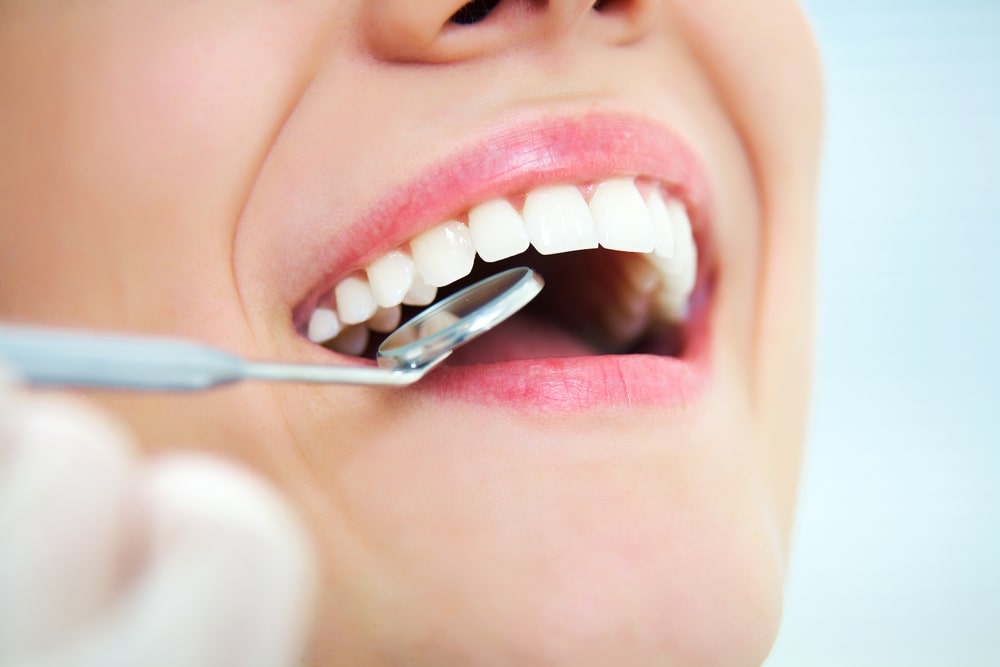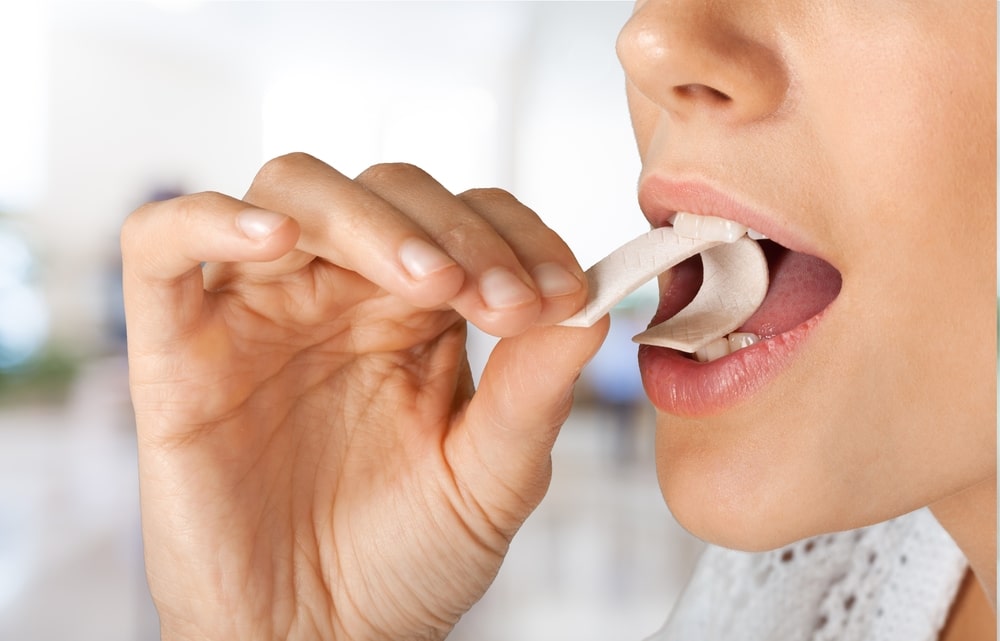Maintaining stable blood sugar levels is crucial for overall health, particularly for individuals with diabetes or prediabetes. Many factors can influence blood sugar levels, including diet, exercise, stress, and medication. While most people are aware of the impact of food and beverages on blood sugar, there is often confusion surrounding other consumables, such as chewing gum. In this post, we will explore the relationship between chewing gum and blood sugar levels to understand: Does chewing gum affect blood sugar levels?
Gum chewing causes the body to produce insulin to be ready for incoming glucose by signaling the brain that food is being ingested. If the gum contains sweeteners, those ingredients may be broken down into glucose and cause a brief rise in blood sugar levels.
Potential Benefits of Chewing Gum for Diabetes Management:
Oral Health:

Chewing sugar-free gum can promote oral health by stimulating saliva production, which helps maintain a healthy mouth and reduces the risk of tooth decay and dry mouth—common issues faced by individuals with diabetes.
Chewing sugar-free gum may when added to a regular home oral care routine of twice daily brushing with fluoridated toothpaste and daily cleaning between teeth, contribute to reducing caries risk.
Some sugar-free gums contain additives like xylitol, which has been shown to promote tooth remineralization. Remineralization is the process of replenishing minerals, such as calcium and phosphate, in tooth enamel, helping to strengthen teeth and prevent cavities.
Craving Control:

Does chewing gum affect blood sugar levels? Chewing gum can be a useful tool for managing cravings and reducing the desire for high-sugar snacks.
By providing a satisfying oral sensation and a burst of flavor, it may help individuals with diabetes resist the temptation to consume unhealthy sugary treats.
Chewing gum may help you feel slightly less hungry, experience fewer cravings, and feel full for longer. In turn, this can help you eat slightly fewer calories over the day.
Side Effects of Chewing Gum:

Chewing gum has become a popular pastime for many people worldwide. Whether it’s for freshening breath, alleviating stress, or satisfying the desire for a sweet taste, chewing gum is often a harmless habit.
Digestive Issues:
Chewing gum can cause digestive problems for some individuals, especially when consumed in large quantities or if it contains certain ingredients. One common issue is swallowing excessive amounts of air while chewing gum, leading to bloating, gas, and discomfort. Additionally, sugar-free gum often contains sugar alcohols like sorbitol or mannitol, which can have a laxative effect and cause diarrhea or abdominal cramps in susceptible individuals.
Temporomandibular Joint (TMJ) Disorders:
Excessive and prolonged gum chewing can place stress on the temporomandibular joint (TMJ) – the joint that connects the jaw to the skull. This can lead to jaw pain, headaches, and even TMJ disorders. Individuals who already have TMJ issues or jaw pain should be cautious about excessive gum chewing, as it can exacerbate these problems.
Tooth Decay:
While sugar-free gum is often promoted as a dental-friendly alternative, it’s important to note that not all gum is created equal. Gum that contains sugar can contribute to tooth decay if it remains in the mouth for prolonged periods. The sugar provides a food source for bacteria, which then produce acids that attack tooth enamel.
Jaw Muscle Fatigue:
Frequent gum chewing can lead to jaw muscle fatigue, especially if you chew for long periods or exert excessive force. Overworked jaw muscles can cause discomfort, soreness, or tension headaches. To prevent muscle fatigue, try to limit the duration and intensity of gum chewing sessions and take breaks if you notice any discomfort.
Allergic Reactions:
In some cases, individuals may experience allergic reactions to certain ingredients present in chewing gum. Allergies to gum components such as flavors, preservatives, or latex (found in some gum bases) can manifest as itching, hives, swelling, or even difficulty breathing.
Does Chewing gum affect blood sugar levels?

Hyperglycemia can result from chewing gum that contains both sugar and caffeine because the sugar in the gum can quickly boost blood sugar levels. Additionally, caffeine may lead to insulin resistance, which makes it more challenging for the body to control blood sugar levels. Chewing gum impacts Blood Sugar Levels by:
Sugar-Free Gum:
The majority of chewing gum available today is sugar-free, which means it contains sugar substitutes like sugar alcohols (e.g., Xylitol, Sorbitol, Mannitol) or artificial sweeteners (e.g., Aspartame, Sucralose, Stevia).
These sweeteners are not fully digested or absorbed by the body, resulting in fewer calories and a minimal impact on blood sugar levels. Many sugar-free gums have a negligible effect on blood sugar, making them a suitable choice for individuals with diabetes or those watching their carbohydrate intake.
Sugar-Containing Gum:
Some chewing gum products still contain table sugar (sucrose). Regular chewing gum with sugar can have a moderate impact on blood sugar levels, especially if consumed in large quantities. It can quickly result in hyperglycemia (high blood sugar) because the sucrose in the chewing gum gets quickly broken down to glucose.
However, it’s important to note that chewing gum is not typically consumed in large amounts, and the duration of gum chewing is relatively short. Therefore, the impact of sugar-containing gum on blood sugar levels is generally minimal and temporary.
In Persons With Diabetes:
Does Chewing Gum Affect Blood Sugar Levels? Diabetes is a chronic condition that affects millions of people worldwide. Managing blood sugar levels is crucial for individuals with diabetes, and diet plays a significant role in this process.
While most people are aware of the impact of food and beverages on blood sugar, there is often uncertainty about the effects of chewing gum. In this blog post, we will explore the relationship between chewing gum and diabetes to understand whether it can be a part of a diabetic-friendly lifestyle.
Chewing gum is a popular activity enjoyed by people of all ages. It is typically made of a gum base, sweeteners, flavors, and various additives. When it comes to diabetes, it’s important to differentiate between sugar-containing gum and sugar-free gum, as their impact on blood sugar levels can differ significantly.
Sugar-Containing Gum and Diabetes:
Gum that contains sugar can raise blood sugar levels, especially if consumed in large quantities. However, it’s important to note that chewing gum is not typically consumed in large amounts, and the duration of gum chewing is relatively short. Therefore, the impact of sugar-containing gum on blood sugar levels is generally minimal and temporary. However, individuals with diabetes should exercise moderation and consider the overall carbohydrate content of their diet, including any sugars consumed from chewing gum.
Sugar-Free Gum and Diabetes:
Sugar-free gum is a suitable option for individuals with diabetes or those watching their carbohydrate intake. Most sugar-free gums contain sugar substitutes like sugar alcohols (e.g., Xylitol, Sorbitol, and Mannitol) or artificial sweeteners (e.g., Aspartame, Sucralose, and Stevia). These sweeteners are not fully digested or absorbed by the body, resulting in fewer calories and a minimal impact on blood sugar levels. Sugar-free gum is a good alternative for satisfying the desire for a sweet taste without significantly affecting blood sugar control.
Chewing gum and Blood Sugar:

Does chewing gum raise blood sugar? The elevation of blood sugar levels depends upon whether you are chewing gum with sugar or without sugar.
In general, chewing on any food item has been reported to stimulate intestinal reactions that result in increased release of insulin. Insulin is primarily secreted in response to glucose. When you chew gum, your brain signals that you have consumed a food item. As a result, your body starts secreting insulin in preparation for incoming glucose.
In case you are chewing gum containing sugar, the sugar will be metabolized to glucose, causing a temporary increase in blood sugar level. Moreover, if chewing gum contains caffeine, there could be a quick spike in blood sugar levels too. That’s because caffeine can cause insulin resistance which makes it difficult for the body to regulate blood sugar levels.
On the other side, Sugar-free chewing gum is generally considered to have a minimal effect on blood sugar levels. This is primarily due to the use of sugar alcohols or artificial sweeteners as sweetening agents.
As a result, they contribute fewer calories and have a lesser impact on blood sugar compared to regular sugar. Artificial sweeteners, such as aspartame, sucralose, and stevia, do not contain carbohydrates and do not raise blood sugar levels. The negligible impact of sugar-free gum on blood sugar levels makes it a suitable choice for individuals with diabetes or those seeking to minimize their carbohydrate intake.
However, it is important to note that the response to sugar alcohols and artificial sweeteners can vary among individuals. Some people may experience gastrointestinal symptoms, such as bloating or diarrhea when consuming sugar alcohol in large quantities. Therefore, moderation is key when incorporating sugar-free gum into a diabetic or low-carbohydrate diet.
Does chewing gum spike Insulin: What is the Insulin Response?
Chewing gum, regardless of its sugar content, stimulates saliva production. Many people doubt- does chewing gum spikes Insulin. Some studies suggest that the act of chewing and the resulting saliva release can trigger a mild insulin response. Through saliva, protein is provided that helps create a way for insulin to enter the bloodstream.
However, this response is typically short-lived and does not significantly impact blood sugar control in individuals without diabetes. For individuals with diabetes, the effect is generally minimal and not a cause for concern unless consuming large quantities of gum.
As per researchers, chewing gum can be very helpful in sending insulin into the bloodstream of diabetics. Insulin chewing gum can help significantly break down orally-ingested insulin by the digestive system.
Sugar-Containing Gum:
Some chewing gum products still contain table sugar (sucrose). Regular chewing gum with sugar can have a moderate impact on blood sugar levels, especially if consumed in large quantities. It can quickly result in hyperglycemia (high blood sugar) because the sucrose in the chewing gum gets quickly broken down to glucose.
However, it’s important to note that chewing gum is not typically consumed in large amounts, and the duration of gum chewing is relatively short. Therefore, the impact of sugar-containing gum on blood sugar levels is generally minimal and temporary.
End Note:
In summary, chewing gum, particularly sugar-free gum, generally has a minimal impact on blood sugar levels. The sugar substitutes commonly found in chewing gum are not fully absorbed by the body and, therefore, have a negligible effect on glucose control.
However, it is important to consider an individual’s overall diet and lifestyle when assessing the potential impact of chewing gum on blood sugar. As always, the question is: Does chewing gum affect blood sugar levels? Yes! It does.
Individuals with diabetes or prediabetes should consult with their healthcare provider for personalized advice and recommendations regarding their diet and blood sugar management.
Remember, while chewing gum can be an enjoyable pastime, it is just one small piece of the puzzle when it comes to maintaining stable blood sugar levels. A balanced diet, regular exercise, proper medication management (if necessary), and overall healthy lifestyle choices remain the key factors in achieving optimal glucose control.
FAQs:
Is chewing gum bad for diabetics?
Yes, if the gum has sugar content, it can affect a person suffering from diabetes. Diabetics can chew xylitol gums as these do not contain sugar or fructose and have minimal to no effect on blood sugar or insulin levels. Many studies reveal Xylitol as a sugar replacement.
Does Chewing Gum Break Your Fast?
Yes, it does. Fasting breaks down as soon as you eat something with calories, be it chewing gum. During fasting, your body will be more sensitive to sugar and even a small amount of sugar in chewing gum may be enough to evoke an insulin response which will break your fast. However, chewing gum without calories may be allowed during most types of fasting, including intermittent fasting.
Does quitting chewing gum help diabetics?
Chewing gum and diabetes are not quite related to each other. But if a person continues to consume sugar-loaded chewing gums, it will not help with diabetes. Gum chewing should be avoided by diabetics as it can increase the risk of release of insulin by sending signals to their brain that they are having something sweet.
Are there any side effects to chewing Xylitol gum?
Generally, Xylitol gum is well tolerated by people. However, some people may experience certain unwanted effects when they have xylitol gums in excess. The potential side effects of having xylitol gum in high doses (like more than 15 grams a day) include petulant bowel syndrome, diarrhea, gas, bloating, nephrolithiasis, and others.
Can chewing gum affect a glucose test?
Yes, it can affect the glucose test, and answers our question: does chewing gum affect blood sugar levels? A glucose test is done to check for blood sugar levels in the blood of an individual or to monitor diabetes. As chewing sugar gum can cause an insulin response, it can affect the result of a glucose test.
References:
- https://www.ncbi.nlm.nih.gov/pmc/articles/PMC4546692/
- https://blog.ultrahuman.com/blog/the-sticky-truth-how-chewing-gum-can-raise-blood-sugar-levels/


